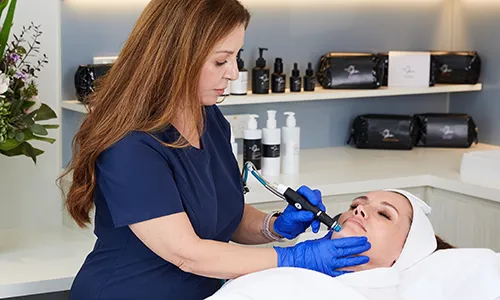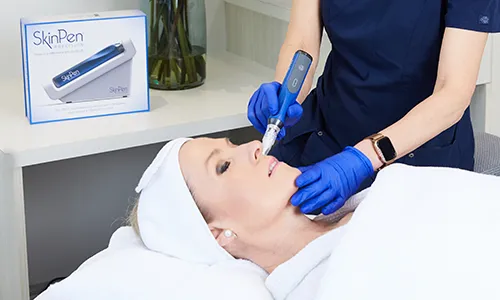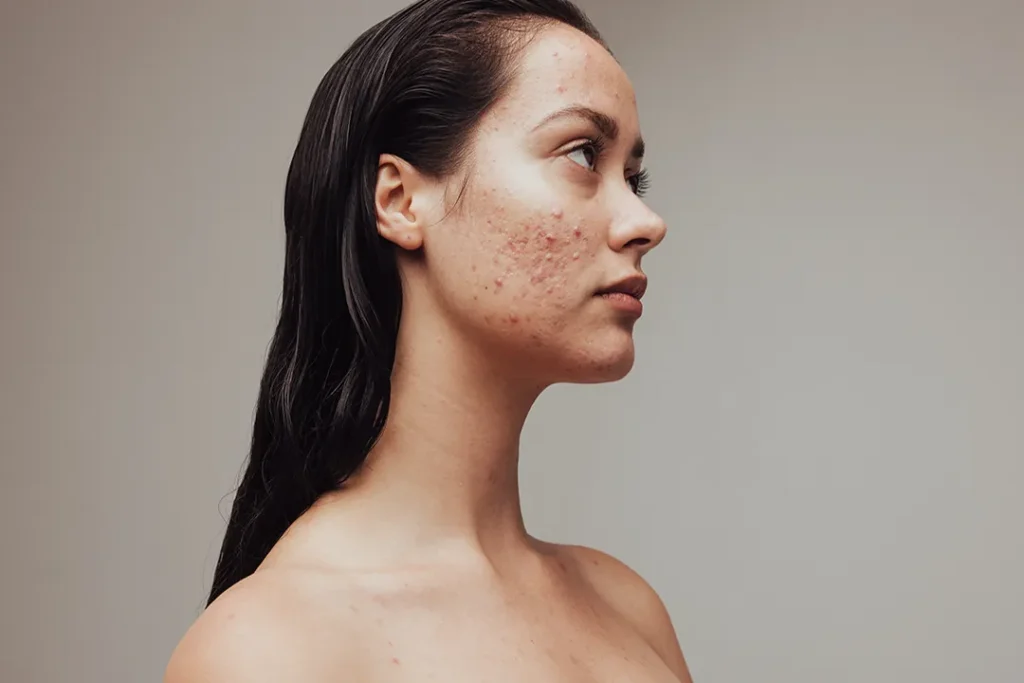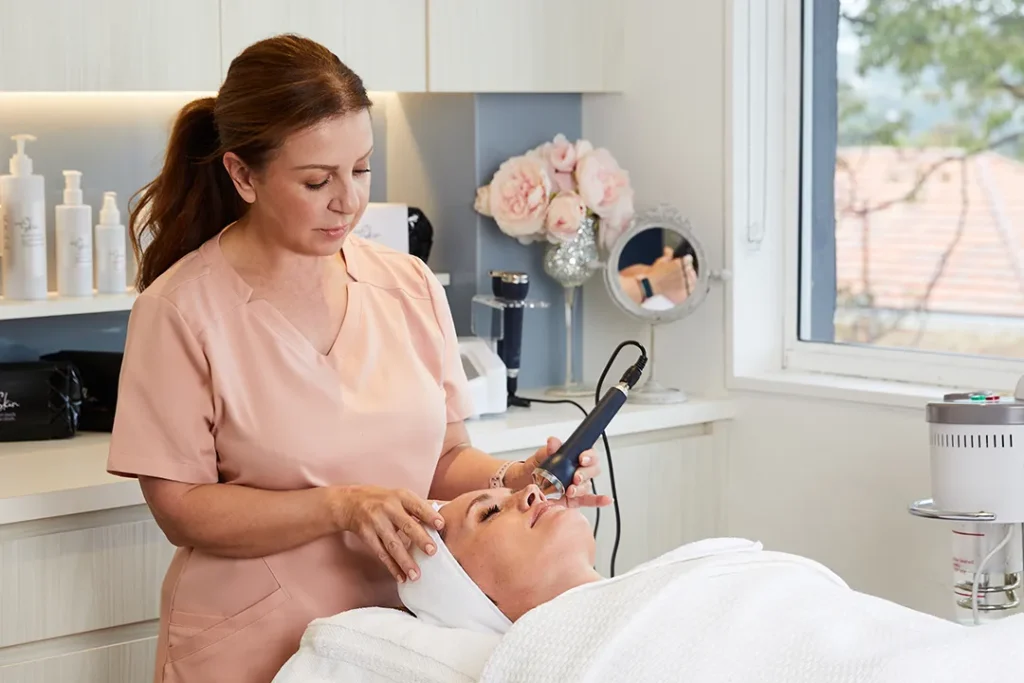Acne & Acne Scarring
Plagued by blemishes, pimples, blackheads and whiteheads? If so, you are one of millions of people suffering from a common skin disease called acne vulgaris.
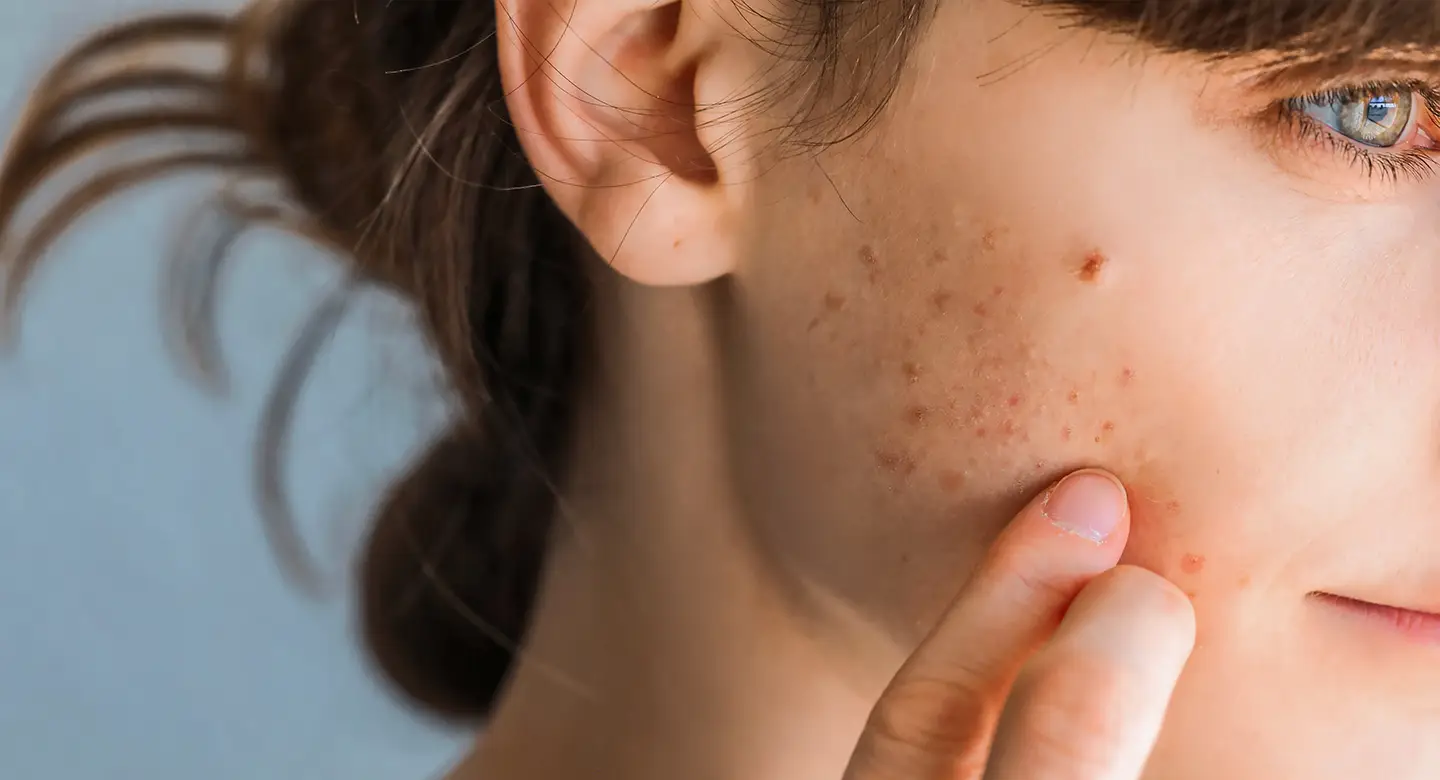
Acne – You Are Not Alone
Acne vulgaris is the world’s most common skin disease. As many as 85% of people will suffer with acne at some point in their lives. Most acne sufferers are teenagers, but the unsightly blemishes and painful pimples it produces can occur at any age.
Why You Need to Act Quickly for Best Results
For many people, acne is a passing unwelcome problem. For others, it can be severe and unrelenting. Left untreated, acne vulgaris can result in permanent scarring. Unfortunately, 70% of people with stubborn or moderate to severe acne never see a doctor. That is a mistake because acne is highly treatable.
Why You Have Acne
Skin bumps associated with acne are generally caused by:
- Increased production of oil and/or sebum
- Blocked facial hair follicle openings
- Inflammation due to bacteria
Any or all of these factors can cause unhealthy obstructions in your skin’s self-cleaning mechanism. Here’s what you need to know:
Increased Oil Production
The human body has tiny oil glands connected to each hair follicle. During certain times of life, such as puberty, these glands can become larger due to hormonal changes and diet. This extra oil can lead to acne. Interestingly, not all oil glands are affected the same way, which is why acne often appears in specific areas of the body.
Blocked Facial Hair Follicle
Inflammation Due to Bacteria
Austin Clinic’s Treatments for Acne
Acne cannot be cured overnight, but it can be treated and managed. We have seen exactly that during the more than 15 years we have been operating Austin Clinic.
We will develop a personalised plan that reflects your unique medical history and acne trigger factors, as well as your past experiences and skin goals.
We have a huge range of treatments, such as:
Microdermabrasion
HydraFacial
Austin Clinic Treatments for Acne Scarring
As with many medical challenges, the best treatment available for acne is prevention. Most minor scarring will fade naturally over time, without treatment, however the following are particularly useful:
Microdermabrasion
Exfoliation and the suction removal of dead skin cells can help reduce minor to moderate acne scarring.
Silicone Gel
A transparent gel treats uneven skin and large scars and is recommended for new outbreaks.
For more challenging cases of acne, there have been many recent advancements in scar treatment, and combination treatments too. When those treatments are begun quickly after diagnosis, they can help to ensure that no new lesions develop.
Takeaway Skincare for Acne
In addition to the treatments available at Austin Clinic, we have a broad range of medical skincare products from Austin Skin, and our partner brands in health and beauty. These products are specifically formulated to clean, exfoliate, and decongest excessively oily and/or blocked skin.
FAQs
What is the first step?
Doctors who treat this condition
Dr Susan Austin
Dr John Kessel
Dr Yalda Jamali
Related Articles
Cosmetic Treatments for Breastfeeding Mums
Becoming a mother is one of the most transformative experiences in a woman's life … including what it does to her skin.
Acne: A Problem Shared by Young and Old
Acne, a common skin condition characterised by pimples, blackheads, and whiteheads, can be a frustrating experience for many. From teenagers navigating puberty to adults seeking clearer skin, effective acne management is essential.
Sonophoresis: A Sound Approach to Skincare
Wouldn’t life be grand if your skincare products could bypass your skin's protective barrier and deliver their potent ingredients straight to where you need them most?
The Acne Apocalypse and Treatments That Work
let's debunk some common acne myths and equip you with the knowledge (and products) to achieve breakout bliss.
